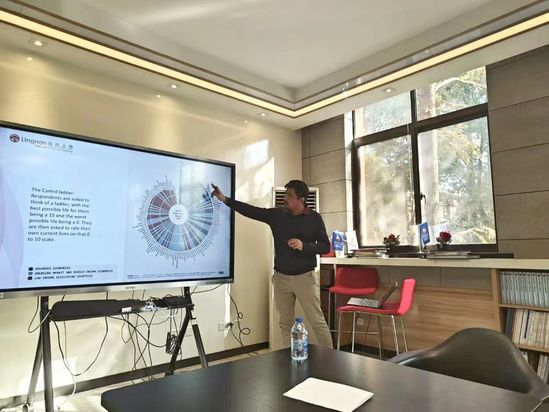Author:TAN Yuyan Release date:2025-02-11 11:20:47Source:复旦大学英文微信公众号“Fudan University”

With his successful application to the Fudan Development Institute Visiting Scholar Program, Francisco Olivos, a Chilean sociologist, embarked on a one-month research residency at Fudan University in December.
Specializing in cultural sociology, educational inequality, and social stratification, Olivos has made significant contributions to the field of sociology through his cross-cultural studies. His research explores the shifting perceptions of China among Latin American people in the context of globalization.
Let’s take a closer look at some of his insights into cross-cultural sociology.

Q: Your academic journey spans Chile, Hong Kong, and now Fudan. How is your research proposal connected to this diverse cross-cultural background?
Olivos:
Cross-cultural research involves comparing societies and understanding the behaviors and perspectives of people from different cultures. I was born and raised in Chile, where I completed both my bachelor’s and master’s degrees. I then pursued my second master’s degree in the Netherlands. Finally, I completed my PhD studies and became a professor in Hong Kong. These experiences have provided me with insight into how individuals from diverse societies think and view the world.
Q: Your work explores how cultural and social contexts shape individual opportunities. Could you share how you see these factors connecting, especially in the context of Latin America’s relationship with China?
Olivos:
Values and ideas are shaped by family, environment, and community, and all these social factors have a strong influence on behavior.
In Latin America, where economic inequality is prevalent, people live in vastly different environments, and these disparities significantly influence their attitudes toward China. People with higher education may have business ties to China, often view the country positively. Education plays a key role in shaping these perceptions.
Q: How do computational social science methods enhance your understanding of social issues like stratification and cultural capital during your study of China-Latin America relations?
Olivos:
Computational methods have transformed research, allowing us to address past challenges and explore new questions. I started to use big data analysis the past years, which helps us understand what people mean, how they perceive information, and the sentiments expressed in news reports. Analyzing vast amounts of text—sometimes millions of articles—requires computational techniques. These methods help identify patterns, topics, and sentiments, revealing how China is described in the media and shaping its global image.
Q: How has collaborating with Fudan scholars shaped your research, and what do you hope to accomplish through these partnerships?
Olivos:
This study, which focuses on the attitudes of American citizens and people in the Chinese mainland, will be the first of its kind in sociology. It’s a joint project with my research partner and will serve as a reference for understanding the attitudes of ordinary people in Latin America and China, especially in light of their growing relationship.
Q: What advice would you give to Fudan students interested in sociological research, particularly those interested in global issues like education, social mobility, and cultural inequality? How can they contribute to global discourse on these topics?
Olivos:
From my experience, anyone studying sociology should aim for a global perspective and think beyond their own background. Our environment shapes the way we think, but this can limit our understanding of sociological issues. Researchers from regions like Europe, the U.S., Africa, and Latin America often approach their studies from very different contexts. To have a global impact, it’s important to broaden your thinking beyond your own society.
This is what we mean by global impact—research that contributes to a broader understanding of the world. I encourage you to keep learning and exploring diverse perspectives.